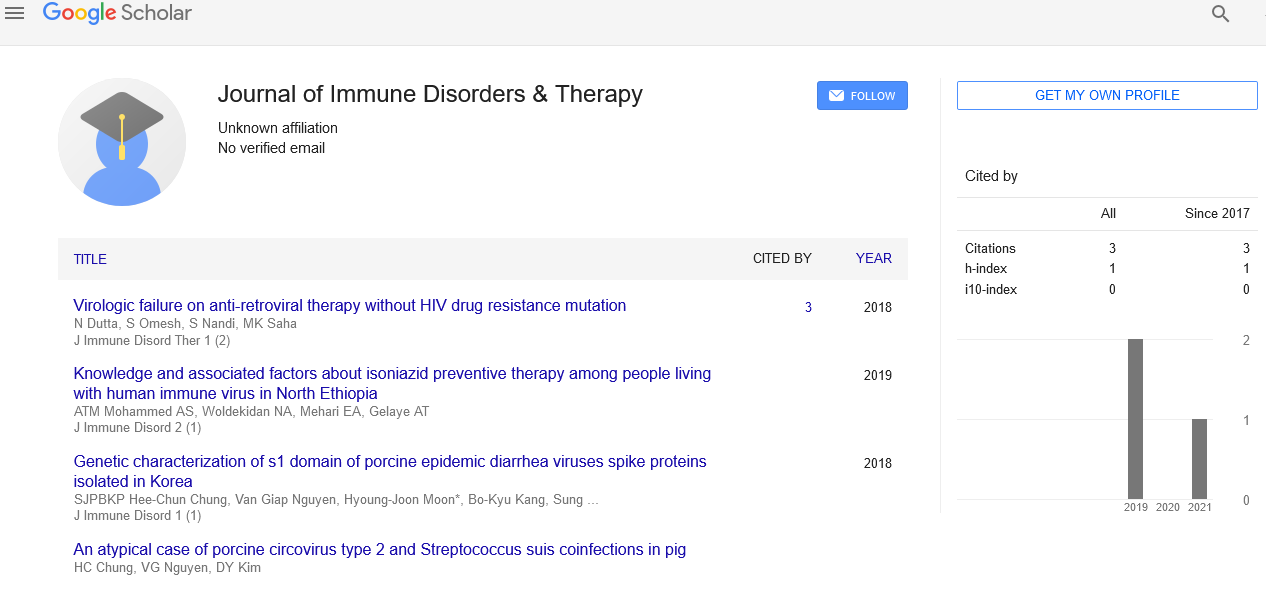BCG Vaccine and Immunodeficiency
Czech Republic
, USA, Email: daifulah16@gmail.comReceived: 10-Jun-2021 Accepted Date: Jun 24, 2021; Published: 01-Jul-2021, DOI: 10.37532/puljidt.2021.4(3).004
This open-access article is distributed under the terms of the Creative Commons Attribution Non-Commercial License (CC BY-NC) (http://creativecommons.org/licenses/by-nc/4.0/), which permits reuse, distribution and reproduction of the article, provided that the original work is properly cited and the reuse is restricted to noncommercial purposes. For commercial reuse, contact reprints@pulsus.com
Abstract
BCG recommended for unvaccinated, TST-negative or IGRA-negative for school children for coming from or moving to the high incidence/burden as well as older groups at risk through occupational exposure as a precaution while BCG vaccination is not recommended during pregnancy.
Introduction
Tuberculosis (TB) is considered by the WHO as global health emergency in 1993. In 2011 one third of the world’s population thought to be infected with the TB and 8.9 million cases of the active TB annually. BCG vaccine is one of the effective control measures for prevention of TB. It is in the practice since 1960s where the TB is highly prevalent and 120 million BCG vaccines are given annually is effective for preventing severe disease of extrapulmonary TB. However the BCG vaccine is live attenuated vaccine that potentially can cause infection, with an incidence between 1:10,000 to 1:1,000,000 and significantly the higher when given to the immunodeficient infants. Immunodeficient infants who received BCG vaccine at birth time could develope disseminated BCGitis, which is associated with the high morbidity and mortality. However, those who develop disseminated BCGitis usually require for hospital admissions and multiple medications with high cost and low survival rate ranging between 0% to 65% worldwide.KAMCWR, Jeddah Saudi Arabia, has 83% survival rate for treating patients with disseminated BCGitis, but with the using of cytokine therapy and aminoglycoside drug in the addition to common anti-TB drugs. There is high rate of Primary Immunodeficiency Diseases (PID) in the Middle East and the Ministry of Health in Saudi Arabia recently succeeded in moving the BGC vaccine to 6-month of age, instead of giving birth, in order to have time for diagnosing PID. WHO considers that the development of new TB vaccines a major public health priority. BCG vaccine is one of the most effective preventive measures of TB; however, it can cause serious complications with low revival rate. Moving the BGC vaccine to 6-month of age would give time for diagnosing PID. Using cytokine therapy and aminoglycoside drug in the addition to common anti-TB drugs will significantly reduce mortality and morbidity. There are the potentials for development of new BCG vaccine. BCG vaccine properties are largely unknown. In the past decades the development of sophisticated genome analysis techniques, coupled with advances in knowledge of the virulence mechanisms of Mycobacterium tuberculosis, has been provided greater insights into the attenuation and evolution of BCG vaccine. These new insights have extremely important implications for national immunization programs and the developments of future vaccines. The BCG vaccine contains live bacteria that have been weakened, so that they can stimulate the immune system but do not cause diseases in the healthy people. However the vaccine should not be given to the people who are clinically immunosuppressed either due to drug treatment or underlying illness.





